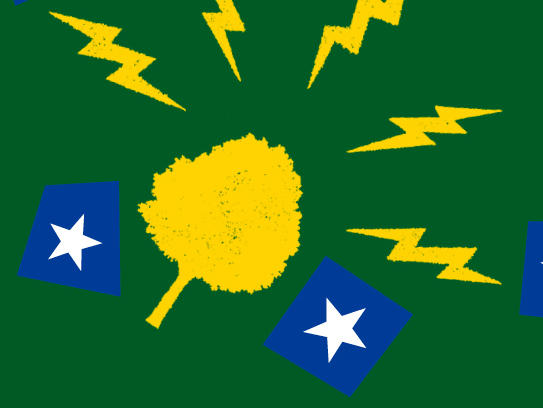In a 2005 essay titled "What the Warming World Needs Now is Art, Sweet Art," McKibben decried the lack of art, especially novels, that dramatized global warming — a deficit that has since been rectified, as the subgenre tagged "climate fiction," or cli-fi, has exploded in the last few years.
By Jason Heller •for NPR
Originally published on November 8, 2017
Bill McKibben has tried almost everything to save the world. Since the publication in 1989 of his popular nonfiction book The End of Nature, the writer, environmentalist, and political activist has dedicated his burgeoning platform to advocating sustainable energy, proactive policy, and personal responsibility in the face of the climate change crisis. In addition to his many books — as well as numerous columns and articles for The New Yorker, The Atlantic, Rolling Stone, and others — he's launched his own environmental organization, 350.org, and served as a surrogate for fellow Vermonter Bernie Sanders in 2016.
In a 2005 essay titled "What the Warming World Needs Now is Art, Sweet Art," McKibben decried the lack of art, especially novels, that dramatized global warming — a deficit that has since been rectified, as the subgenre tagged "climate fiction," or cli-fi, has exploded in the last few years. And now, he's answered his own call for more topical, issue-driven fiction with his debut novel, Radio Free Vermont.
In a 2005 essay titled "What the Warming World Needs Now is Art, Sweet Art," McKibben decried the lack of art, especially novels, that dramatized global warming — a deficit that has since been rectified, as the subgenre tagged "climate fiction," or cli-fi, has exploded in the last few years. And now, he's answered his own call for more topical, issue-driven fiction with his debut novel, Radio Free Vermont.

No comments:
Post a Comment